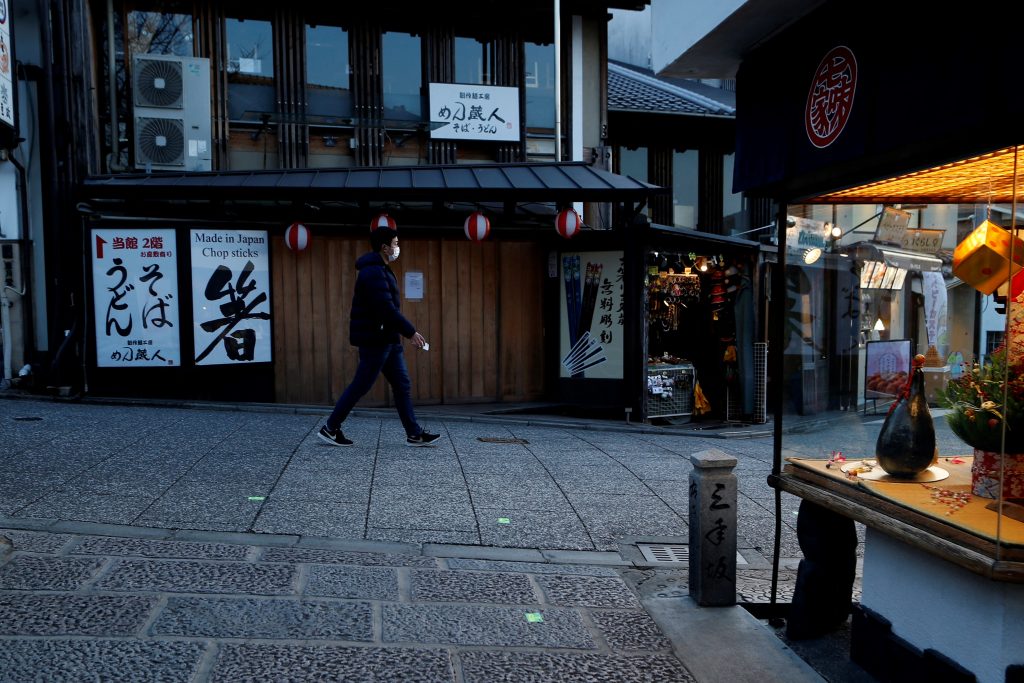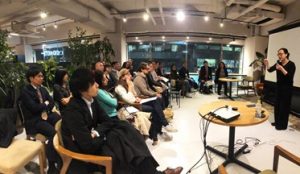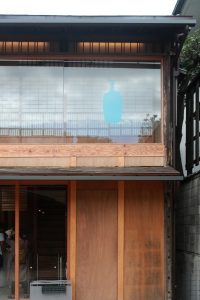
- ARAB NEWS
- 30 Jun 2025

Nader Sammouri
OSAKA: Customer service is quite an art form in Japan, particularly in the city of 1600 temples, the cultural core and heart of Japan, Kyoto.
When it comes to business, the Japanese may have high-quality expectations. For instance, there are specific ways for written, verbal and nonverbal communications. A small flaw in any of those could impact how a business is perceived by its consumers or suppliers and saving face in Japan is almost everything. That is why doing business in Japan is nearly a religious act.
In a sense, this directed approach could be seen as a beautiful form of art, but like everything else, there is the other side of the coin. Japan is a risk-averse culture with people preferring stability over anything else, a Japanese value worthy of mentioning when discussing Japan’s start-up scene. The usual Japanese person desires to work at a big company for as long as possible. This attribute that is weaved in the cultural background of Japan poses a challenge which seems to oppose the essence of entrepreneurship, an unstable risk-taking initiative.
This mindset is progressively changing, and the start-up scene in Japan is blooming more and more. The ministry of economy declared that there are around 10,000 start-ups in japan that are challenging the business world’s boundaries.
There is hardly anyone who knows the start-up ecosystem in Kyoto better than Naofumi Makino, the Chief Director of JETRO Kyoto, who works on innovation support, including the start-up visa program.
JETRO, or the Japan External Trade Organization, is a government-related organization that works on the elevation of joint trade and investment between Japan and countries worldwide. It has 51 offices in Japan and 76 offices overseas, 5 of which are in the middle-east including Dubai and Riyadh. JETRO’s main emphasis in the 21st century has shifted toward sponsoring foreign direct investment into Japan and facilitating small to medium-sized Japanese firms to get the best out of their global export potential.
“We had a kind of Japanese creativity that was exclusive to Japan where Japanese could do research and development by themselves in their style,” Makino said.
Japan is known for importing things from the world and developing its Japanese version of it, but who would have thought that even creativity could have been made exclusive? Japan has done it again.
Makino expressed his interest in Dubai’s innovation progression and mentioned GITEX as one of Dubai’s most significant and exciting innovation events. JETRO has a Japanese Pavilion with several Japanese start-ups there.
Unfortunately, there is a different communication style in the Japanese business ecosystem unique to the culture. This same rare locality stands in the way of inviting foreign talent and making them feel comfortable enough to do business in Japan.

“The risk-averse mentality which the Japanese have is something we are reducing, and that is actually diminishing. One way to do that is to try to connect with global ecosystems as much as possible. These foreign contributions are influencing the local mindset. This diversity we try to create, in Kyoto in particular, exposes people to a sort of global communication,” Makino stated.
Several other initiatives have been born to support overseas entrepreneurs. One of those is Start-up Capital Kyoto, which provides various kinds of supports for overseas entrepreneurs to start their business in Kyoto, including setting up a start-up visa.
“I think the start-up scene in Japan has a problem with language, particularly outside of Tokyo. This barrier makes it difficult for a foreigner to thrive here. No set process facilitates a foreigner to run their business smoothly,” said Sesto Ueda, a Japanese-Italian, who founded LYNX in 2015, a consultancy company that offers solutions to this support-gap as a result of its existing problem.

Ueda is also an organizer in Kyoto international entrepreneur’s community KIEC, which started as an event platform in 2019 for that purpose as well. KIEC was established as a whole functioning platform to help entrepreneurs so that foreigners, in particular, could base a company without the need to ask for an interpreter, for instance.
“Even in Tokyo, where numerous foreigners settle, one will find that people are helping people rather than the government is helping the people,” Ueda mentioned.

Ueda also emphasized that when it comes to foreign-owned businesses in Japan, there is a beautiful balance between keeping traditions alive while embracing change and a unique blend one has to establish to start something new while respecting the tradition.
Blue Bottle cafe, for example, penetrated a local culture elegantly while keeping it very modern. Instead of fighting local culture to introduce a new type of coffee, it paid respect to the pre-existing Kissaten(喫茶店), a Japanese style coffee house, by displaying its coffee in a Japanese Machiya(町屋) in Nanzen-ji, Kyoto. It blended with the culture and treasured its rich history.

Another example is the Ritz-Carlton hotel in Kyoto, which created a unique design with a Japanese look and feel. They did that to respect locals and so they could be at ease with the neighbourhood. As a result of that, the hotel became the first international luxury hotel to come to Kyoto.
“There is a right start-up formula in a way, especially in Kyoto. If one doesn’t have a balanced formula, they will struggle to make a business work. There is an adherence to a spirit in Kyoto known as “Sampo-yoshi” (三方よし), meaning a Win-Win-Win situation or a three-way satisfaction. Doing good for the seller, good for the buyer, and good for the society,” Ueda elaborated.
Finally, Makino concluded by saying that today, external forces dictate a certain amount of pressure towards change. A city like Kyoto, used to rely on tourist flow, and its introduction to the world is now forced upon technology. That is why we promoted programs to endorse Kyoto’s charm and its delicate products virtually, such as this virtual shop in such a charming traditional setting. Artificial intelligence is also instrumental in analyzing the data of online crowds and such.